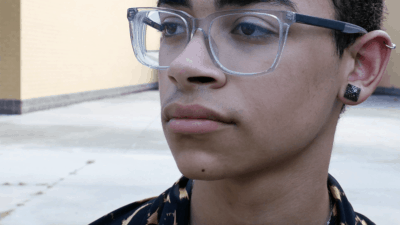Share this story
|
|
For Black male students, being matched with educators who look like them means more than ever. A new study found that Black male elementary school students are less likely to be placed in special education if they have Black teachers.
The North Carolina-based study published in the American Educational Research Journal shows how a teacher’s interpretation of certain behaviors can determine the path for students receiving discretionary services, such as gifted or special education. The findings show patterns for Black and non-Black students.
Cassandra Hart, a professor of education at the University of California-Davis, said the findings add to a growing body of evidence that Black children benefit from having Black teachers.
Sign up for the EdWeekly, a Friday roundup of the most important education news of the week.
“We show that access to Black teachers most strongly affects precisely the types of special disability placements that are more subject to teacher discretion, and therefore where the need for services is more questionable,” Hart said.
According to the U.S. Department of Education, about 7% of teachers nationwide are Black, compared to 15% of students.
The study used North Carolina administrative data from the 2007-08 school year to 2012-13. It mainly focused on students in elementary school, the stage of schooling that the researchers said recognition for gifted and talented services typically happens. Recognition of the need for special education typically happens by first grade.
The study did not find evidence that being matched to a Black teacher was related to Black students being recognized for gifted services. However, it did find that Black students matched to Black teachers were nearly one percentage point less likely to be identified for special education services the following year. To be more specific, Black boys were 1.7 percentage points less likely to be identified with a disability if they were matched to a Black teacher. The same comparison for Black girls showed little or a non-significant amount of change.
According to the study, economically disadvantaged Black boys who had not been previously identified with disabilities and were matched to Black teachers had roughly a two-percentage-point reduction in being identified with disabilities, compared to their peers matched to non-Black teachers.
The study found no relationship between teacher race and identification with disability. There was also no statistically significant relationship between teacher race and gifted identification for either sex.
Constance Lindsay is an assistant professor of educational leadership at the University of North Carolina-Chapel Hill. As a fellow researcher on the study with Hart, she said that Black teachers may be less likely to suggest screening for disabilities across the board.
“It may be that Black teachers interpret certain behaviors as simple inattentiveness rather than a disability, or that Black students respond to Black teachers with more engagement,” Lindsay said.
The study also found that being matched to a Black teacher was positively related to next-year gifted identification for students in schools with lower concentrations of Black students. The study found this to be especially true for Black girls.
The research also found that results were strong for specific learning disabilities that have a more subjective component to diagnosis.
The study, according to researchers, also provided additional context to whether Black students are over or under-identified for special education.
Per a press release, Hart and Lindsay said that special education placement can benefit children when deemed appropriate. Concerns come from children being exposed to the potential stigma of special education and “the need for services may be more discretionary,” the press release said.
Lindsay said that regardless of the reason for the trends, the research helps show that diversifying the workforce does not harm, but rather often provides benefits for Black and non-Black students.
The full study and its findings can be found here.
Recommended reading




